Dealing with Public Health Emergence: Online Life and Advanced Technologies in Remote Education
Organizers: Women in Engineering (WiE), Norma Anglani, Hong Li, Giovanna Oriti, Katherine A. Kim, Jin Ye, Jingya Dai, Mi Dong, Shu Yang, Na Zhi
Abstract:
Remote education has become an important part of schools and universities all over the world during the outbreak of the coronavirus. Advanced technologies, such as advanced meeting software and online education, are playing an important part in the remote education. In this workshop, various engineers and educators will share their approach, tools and advanced software they use, and lessons learned in successfully implementing remote education for people around the world.
Short Bio of Organizers:
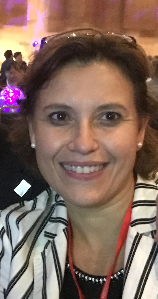 Norma Anglani (S’93- M’99) received the Laurea (with Hons.) and Ph.D. degrees in Electrical Engineering from the University of Pavia, Pavia, Italy, in 1993 and 1999, respectively. She is IEEE IAS Senior member and a Chartered Engineer since 1995. After graduating she worked for a consulting company in the energy efficiency area. Later, she was a Postdoctoral Fellow with the Energy Analysis Group and with the Energy Efficiency Standards Group, Lawrence Berkeley National Laboratory, Berkeley, CA. Since 2019 she is IEEE IAS Liaison in the Women in Engineering Committee. She is Assistant professor with the Department of Electrical, Computer and Biomedical Eng., University of Pavia (I), where she teaches and does research in the field of energy management, energy planning, modeling, and efficient compressed air systems. She got the qualification as Associate professor in 2018. She set up the Labac laboratory, a joint effort between academia and industry. She has been responsible for several research contracts with public and private bodies and has coauthored more than 70 scientific papers.
Norma Anglani (S’93- M’99) received the Laurea (with Hons.) and Ph.D. degrees in Electrical Engineering from the University of Pavia, Pavia, Italy, in 1993 and 1999, respectively. She is IEEE IAS Senior member and a Chartered Engineer since 1995. After graduating she worked for a consulting company in the energy efficiency area. Later, she was a Postdoctoral Fellow with the Energy Analysis Group and with the Energy Efficiency Standards Group, Lawrence Berkeley National Laboratory, Berkeley, CA. Since 2019 she is IEEE IAS Liaison in the Women in Engineering Committee. She is Assistant professor with the Department of Electrical, Computer and Biomedical Eng., University of Pavia (I), where she teaches and does research in the field of energy management, energy planning, modeling, and efficient compressed air systems. She got the qualification as Associate professor in 2018. She set up the Labac laboratory, a joint effort between academia and industry. She has been responsible for several research contracts with public and private bodies and has coauthored more than 70 scientific papers.
Since the beginning of the Covid-sanitary emergency in Italy she has been switched all her classes to online (as everyone) and has been managing from home all her work (reviews of master and PhD thesis, research work and meetings, graduation day, service for students, work on Committees, two classes for master students, …). After more than 3 months she is ready to share hints, tips and tools of this very intense experience.
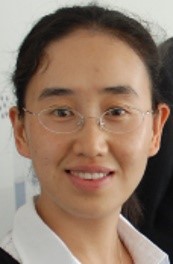 Hong Li received her B.Sc., M.Sc., and Ph.D. degrees from Taiyuan University of Technology, South China University of Technology, and FernUniversität in Hagen, Germany, in 2002, 2005 and 2009, respectively. She is a full Professor of Electrical Engineering School, Beijing Jiaotong University, China. Her research interests include nonlinear modeling, analysis and its applications, EMI suppressing methods for power electronic systems, wide band gap power devices and applications. She has published 1 book, 40 journal papers, and 45 conference papers. She has also authorized and applied more than 20 patents. Prof. Li is Associate Editor of IEEE Trans. Industrial Electronics, IEEE Open Journal of Industrial Electronics Society, and Chinese Journal of Electrical Engineering, The Chairmen of Women in Science in China Power Supply Society, Vice Chairman of Electromagnetic Compatibility Specialized Committee in China Power Supply Society.
Hong Li received her B.Sc., M.Sc., and Ph.D. degrees from Taiyuan University of Technology, South China University of Technology, and FernUniversität in Hagen, Germany, in 2002, 2005 and 2009, respectively. She is a full Professor of Electrical Engineering School, Beijing Jiaotong University, China. Her research interests include nonlinear modeling, analysis and its applications, EMI suppressing methods for power electronic systems, wide band gap power devices and applications. She has published 1 book, 40 journal papers, and 45 conference papers. She has also authorized and applied more than 20 patents. Prof. Li is Associate Editor of IEEE Trans. Industrial Electronics, IEEE Open Journal of Industrial Electronics Society, and Chinese Journal of Electrical Engineering, The Chairmen of Women in Science in China Power Supply Society, Vice Chairman of Electromagnetic Compatibility Specialized Committee in China Power Supply Society.
 Giovanna Oriti worked in industry for 10 years and in 2008 she joined the faculty of the Electrical and Computer Engineering Department of the Naval Postgraduate School, where she is now a tenured Associate Professor. Her research interests include power electronic converters for electric ship systems, energy management, resilient microgrids and renewable energy interface. She also works on electromagnetic compatibility, common mode elimination, physics-based modeling and control of power converters.
Giovanna Oriti worked in industry for 10 years and in 2008 she joined the faculty of the Electrical and Computer Engineering Department of the Naval Postgraduate School, where she is now a tenured Associate Professor. Her research interests include power electronic converters for electric ship systems, energy management, resilient microgrids and renewable energy interface. She also works on electromagnetic compatibility, common mode elimination, physics-based modeling and control of power converters.
Dr. Oriti has served the Industry Application Society and the Power Electronics Society of the IEEE in various leadership positions over the past 25 years and she is the General Chair for ECCE 2021, which will be held in Vancouver, Canada.
Katherine A. Kim received the B.S. degree in electrical and computer engineering from Franklin W. Olin College of Engineering, Needham, MA, in 2007. She received the M.S. and Ph.D. degree in electrical and computer engineering from the University of Illinois, Urbana-Champaign, IL, USA, in 2011 and 2014, respectively. From 2014 to 2018, she was an Assistant Professor of Electrical and Computer Engineering at the Ulsan National Institute of Science and Technology (UNIST) in Ulsan, South Korea. Since 2019, she has been an Associate Professor of Electrical Engineering at National Taiwan University, Taipei, Taiwan. Her research focuses on power electronics and control for solar photovoltaic applications. She serves as the Power Electronics Society (PELS) Women in Engineering Chair for 2018-2020.
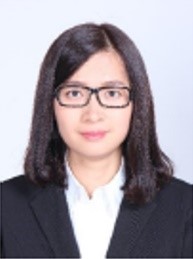 Jin Ye (S’13-M’14-SM’16) is currently an assistant professor of electrical engineering and the director of intelligent power electronics and electric machines laboratory at the University of Georgia. She is a general chair of 2019 IEEE Transportation Electrification Conference and Expo (ITEC), a publication chair and women in engineering chair of 2020/2019 IEEE Energy Conversion Congress and Expo (ECCE). She is an associate editor for IEEE Transactions on power Electronics, IEEE Open Journal of Power Electronics, IEEE Transactions on Transportation Electrification and IEEE Transactions on Vehicular Technology. Her main research areas include power electronics, electric machines, energy management systems, smart grids, and electrified transportation. She received the B.S. and M.S. degrees in electrical engineering from Xi’an Jiaotong University, Xi’an, China, in 2008 and 2011, respectively. She also received her Ph.D. degree in electrical engineering from McMaster University, Hamilton, Ontario, Canada in 2014.
Jin Ye (S’13-M’14-SM’16) is currently an assistant professor of electrical engineering and the director of intelligent power electronics and electric machines laboratory at the University of Georgia. She is a general chair of 2019 IEEE Transportation Electrification Conference and Expo (ITEC), a publication chair and women in engineering chair of 2020/2019 IEEE Energy Conversion Congress and Expo (ECCE). She is an associate editor for IEEE Transactions on power Electronics, IEEE Open Journal of Power Electronics, IEEE Transactions on Transportation Electrification and IEEE Transactions on Vehicular Technology. Her main research areas include power electronics, electric machines, energy management systems, smart grids, and electrified transportation. She received the B.S. and M.S. degrees in electrical engineering from Xi’an Jiaotong University, Xi’an, China, in 2008 and 2011, respectively. She also received her Ph.D. degree in electrical engineering from McMaster University, Hamilton, Ontario, Canada in 2014.
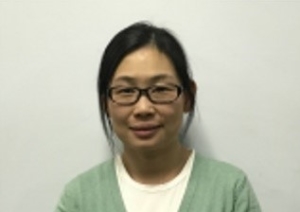 Jingya Dai (S’06-M’10) received the B.Sc and M.A.Sc degrees in electrical engineering from Shanghai Jiao Tong University, Shanghai, China, in 2001 and 2004, respectively, and the Ph. D degree in electrical and computer engineering from Ryerson University, Toronto, Canada in 2010. In 2004, she worked at Delta Power Electronics Center (Shanghai) as an engineer. Since 2008, she has been with the medium voltage R&D department of Rockwell Automation in Cambridge, Canada. Her main research interests include electric motor drives, power conversion techniques and renewable energy systems. She holds over 13 US and international patents in related area.
Jingya Dai (S’06-M’10) received the B.Sc and M.A.Sc degrees in electrical engineering from Shanghai Jiao Tong University, Shanghai, China, in 2001 and 2004, respectively, and the Ph. D degree in electrical and computer engineering from Ryerson University, Toronto, Canada in 2010. In 2004, she worked at Delta Power Electronics Center (Shanghai) as an engineer. Since 2008, she has been with the medium voltage R&D department of Rockwell Automation in Cambridge, Canada. Her main research interests include electric motor drives, power conversion techniques and renewable energy systems. She holds over 13 US and international patents in related area.
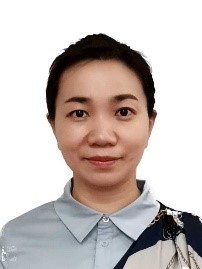 Mi Dong (M’10) received the Master and Ph.D. degrees in Control Science&Engineering from Central South University, China, in 2002 and 2007, respectively. She was a lectorate at this university for 8 years. From 2008 to 2010, she served as the electrical engineer at Delta Tau Data Systems, Inc. in Los Angeles, USA. She rejoined Central South University in 2011. From 2011 to 2017, she was the associate professor of the department of automation. She has been a full professor since 2017. Dr. Dong has served the Women in Science of China Power Supply Society since 2018.
Mi Dong (M’10) received the Master and Ph.D. degrees in Control Science&Engineering from Central South University, China, in 2002 and 2007, respectively. She was a lectorate at this university for 8 years. From 2008 to 2010, she served as the electrical engineer at Delta Tau Data Systems, Inc. in Los Angeles, USA. She rejoined Central South University in 2011. From 2011 to 2017, she was the associate professor of the department of automation. She has been a full professor since 2017. Dr. Dong has served the Women in Science of China Power Supply Society since 2018.
She conducts interdisciplinary research in broad fields of new energy, power quality and power electronics. Her research interests include solar power, microgrid, power quality equipment, power electronics applications and artificial intelligence. In his areas of expertise, she has published more than 50 peer-reviewed technical papers and holds over 30 issued/pending patents. More than 20 article papers have been published in journals such as IEEE Transactions on Power Electronics, IEEE Transactions on Smart Grid, Applied Energy, Energy, etc. She also serves as reviewers of IEEE TSG, IEEE TPE, Energies, Energy, Applied Energy and so on.
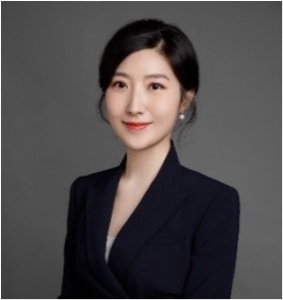 Shu Yang received the B.S. degree in Microelectronics from Fudan University, Shanghai, China, and the Ph.D. degree in Electronic and Computer Engineering from the Hong Kong University of Science and Technology (HKUST), Hong Kong, China.
Shu Yang received the B.S. degree in Microelectronics from Fudan University, Shanghai, China, and the Ph.D. degree in Electronic and Computer Engineering from the Hong Kong University of Science and Technology (HKUST), Hong Kong, China.
She was a visiting assistant professor at HKUST and a postdoctoral research associate at the University of Cambridge, Cambridge, U.K. She is currently an associate professor at the College of Electrical Engineering, Zhejiang University, Hangzhou, China. She has authored or co-authored over 80 technical papers in international journals and conferences. Her research interests include fabrication, characterization and application-relevant study of wide bandgap semiconductor power devices.
Dr. Yang is a recipient of the IEEE ISPSD Charitat Young Researcher Award and the HKUST PhD Research Excellence Award. Dr. Yang serves as an Associate Editor for the IEEE OPEN JOURNAL OF POWER ELECTRONICS and a Guest Associate Editor for the IEEE JOURNAL OF EMERGING AND SELECTED TOPICS IN POWER ELECTRONICS.
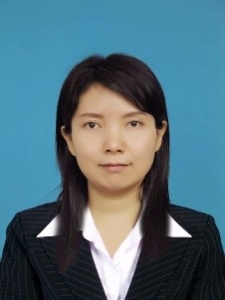 Na Zhi received the B.S. degree in Automation from Xi’an University of Science and Technology, China, and Ph.D degree in Power Electronics from Xi’an University of Technology, China. She was a visiting scholar at Temple University from 2018 to 2019. She is currently an associate professor at Xi’an university of technology. Her research interests include power electronic converters, distributed energy systems, energy management and stability analysis of microgrids. Dr. Zhi has served the Women in Science of China Power Supply Society since 2018.
Na Zhi received the B.S. degree in Automation from Xi’an University of Science and Technology, China, and Ph.D degree in Power Electronics from Xi’an University of Technology, China. She was a visiting scholar at Temple University from 2018 to 2019. She is currently an associate professor at Xi’an university of technology. Her research interests include power electronic converters, distributed energy systems, energy management and stability analysis of microgrids. Dr. Zhi has served the Women in Science of China Power Supply Society since 2018.
Speakers and presentations:
- Noma Anglani, University of Pavia, litaly
How to frame and offer a class of energy planning to electrical engineering Master students online
- Katherine Kim, National Taiwan University, Taiwan
Developing online educational videos to reach a global audience
- Giowanna Oriti, Naval Postgraduate School, Monterey, CA
Distance learning virtual and hardware laboratories
- Hong Li, Bejing Jiaotong University, China
Some thoughts on online-teaching and webinar